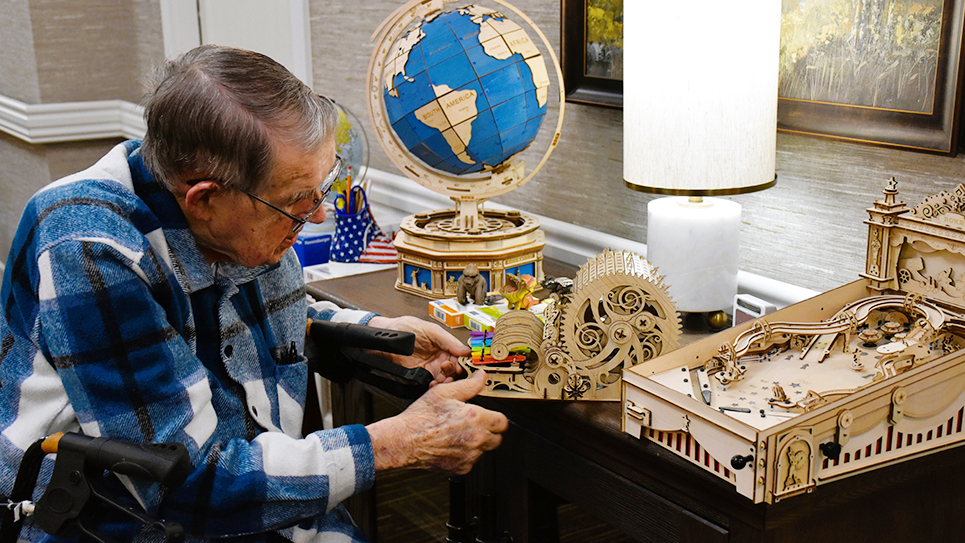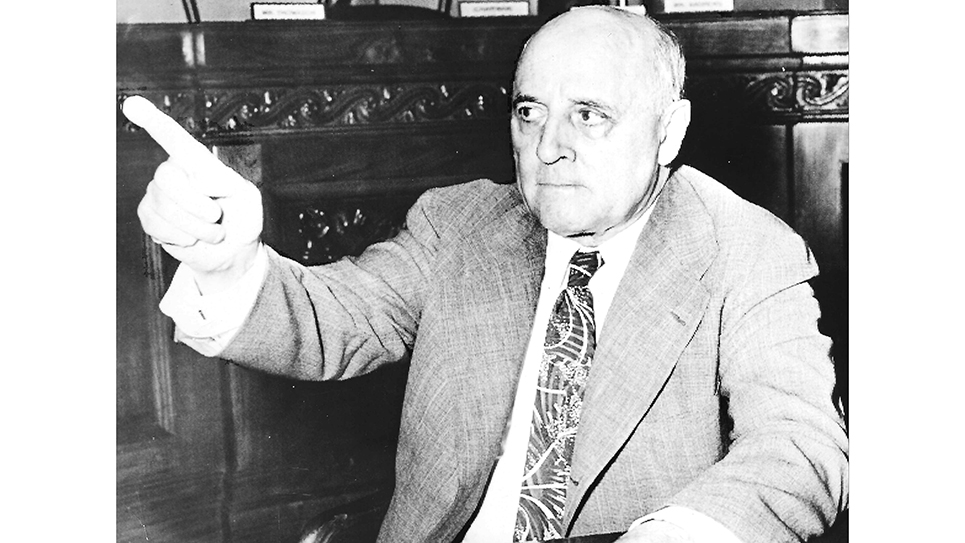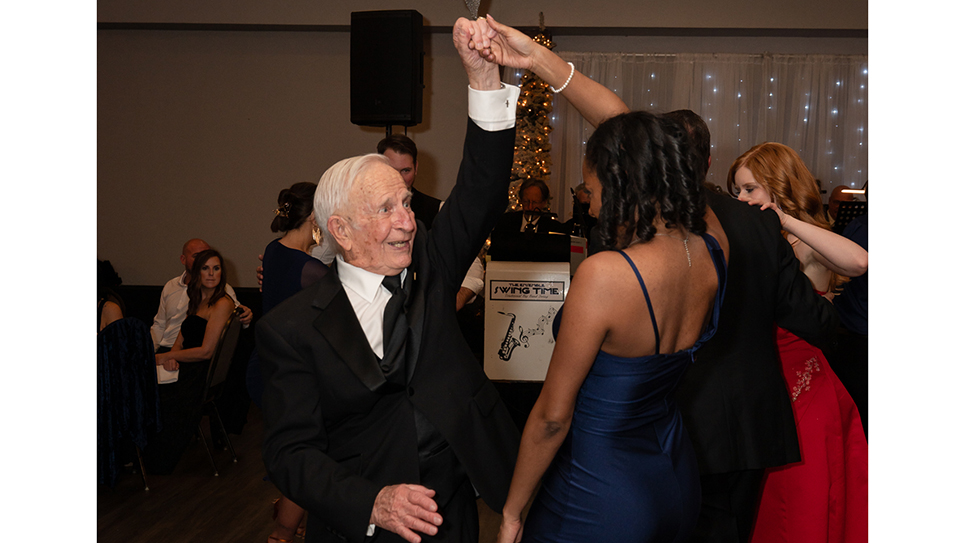By Ray Hill
Tennessee has been quite fortunate to produce any number of political figures of national importance, as well as those who have wielded enormous influence in Congress. Aside from Andrew Jackson, James K. Polk (a political protégé of Jackson’s), and Andrew Johnson – – – the three presidents from the Volunteer State – – – Tennessee has borne a goodly number of those who have made their political mark. Joseph W. Byrns was the last Tennessean to serve as Speaker of the House of Representatives; Howard Baker served as both Minority and Majority Leader of the U.S. Senate. Bill Brock served in both houses of Congress, as U.S. Trade Representative and Secretary of Labor under President Ronald Reagan. Carroll Reece served thirty-six years in Congress and a term as Chairman of the Republican National Committee and was one of the party’s most sought-after elder statesmen. Yet the most enduring political figures were a duo whose political careers ran parallel to one another for decades: Kenneth D. McKellar and Cordell Hull.
Cordell Hull, while having a law degree, spent his entire lifetime in politics and political office. Hull won a seat in the Tennessee House of Representatives when only twenty-one years old. At one time or another, Cordell Hull was a state legislator, judge, chairman of the Democratic National Committee, congressman, and United States senator before becoming Franklin D. Roosevelt’s Secretary of State. Hull remains the longest-serving Secretary of State in our country’s history. Tall and stately, with a crown of white hair, Cordell Hull looked as if he had been cast by Hollywood for his role as a statesman. Hull’s modest outward demeanor masked a man of great ambition, who also possessed a vindictive streak and could strike an opponent as ruthlessly as any viper. Well before the age of television, Cordell Hull carefully guarded, protected and preserved his public image. Hull was quite successful in doing so as polling at the time showed the Tennessean was even more popular than Franklin Roosevelt. Cordell Hull enjoyed higher favorability ratings than Roosevelt because he had wide popularity not only amongst fellow Democrats but also great approval from many Republicans who generally disliked FDR.
Cordell Hull had considered returning to Tennessee and seeking his old seat in the United States Senate when Nathan L. Bachman died in office in 1937. Roosevelt summoned Tennessee’s governor Gordon Browning to the White House where they discussed the senatorial appointment. Browning did not appoint Hull. Cordell Hull remained in office and had dreams of occupying the White House himself. In fact, Hull was the leading contender for the Democratic presidential nomination should Franklin Roosevelt retire in 1940.
Kenneth D. McKellar was the first person ever to be elected by the people of Tennessee to the United States Senate. It is certainly true that McKellar was one of the best vote-getters in Tennessee’s history as he beat virtually every politician of standing to get to the Senate and stay there. McKellar, a congressman from Memphis at the time, beat both incumbent Senator Luke Lea and former governor Malcolm Rice Patterson to become the Democratic nominee for the United States Senate. McKellar faced the strongest nominee Tennessee Republicans could possibly field in the person of former governor Ben W. Hooper. Both Lea and Patterson were such controversial and polarizing figures, it is entirely possible both would have lost the general election to Hooper, a fact McKellar stressed while campaigning. McKellar ran as the “harmony”
candidate, the only Democrat who could bring every faction of the party together in the general election. Kenneth McKellar won the 1916 race for the United States Senate by winning just under 55% of the ballots cast; Ben Hooper made an excellent showing. It was the last serious race for the United States Senate made by a Republican candidate until Carroll Reece ran in 1948.
Over the years, McKellar beat every opponent and the operation of his Senate office added to his personal popularity. A bachelor whose only real hobby was his work, Senator McKellar earned a well-deserved reputation for looking after Tennessee and her people. Once on the floor of the U. S. Senate, someone coined the word “McKellarism” and the Tennessean came to his feet with a roar. With his usual candor, the senator confronted the issue directly. “If loyalty to my friends and showing appreciation for their friendship, if seeing that my state receives its portion of public favors so that our people may progress and advance with other sections is ‘McKellarism’, as has been charged, I gladly meet the issue,” McKellar retorted. “If what I have done is McKellarism, I stand for McKellarism.” And so he did. And nobody benefitted more from “McKellarism” than the people of Tennessee. Few members of the United States Senate wielded more influence inside that body than Kenneth D. McKellar. McKellar was the ranking member of the Senate’s powerful Appropriations Committee through which every dollar spent by the federal government passed. A goodly number of those dollars were steered into Tennessee in the form of public works, projects and jobs. During the depths of the Great Depression, Senator McKellar saw to it that Tennessee and Tennesseans got more than their fair share. To give readers some idea of the senator’s personal and political popularity, in 1934 then-Congressman Gordon Browning was considering challenging the venerable McKellar for the Senate. Years later, well after he was retired, Browning stated in an oral history he could not garner a commitment of support from a single prominent Democrat in the state of Tennessee to oppose McKellar.
Senator McKellar and his friend and ally, E. H. Crump, fought a pitched battle with Gordon Browning for control of Tennessee’s Democratic party in 1938, which they won. The two completely dominated Tennessee’s politics for a decade.
McKellar was well known in Washington as a feudist and one tangled with the wily Tennessean at his or her own peril. Outwardly, Cordell Hull seemed dignified, kindly and modest, but like any successful politician, the Secretary of State had a healthy ego and was well able to tote his end of any political brawl. Befitting the son of a man who hunted down and killed the man who had shot him, Cordell Hull’s enmity proved lethal to the career of his subordinate in the State Department, Sumner Welles. No recitation of Hull’s character and career is complete without covering the undoing of Sumner Welles.
Welles had been named Assistant Secretary of State by President Roosevelt who had known him for years. In fact, Welles had served as the ring bearer/page in Roosevelt’s wedding to First Lady Eleanor Roosevelt.
Sumner Welles was not exactly the kind of man who radiated an average fellow aura. In fact, Sumner Welles was either quite arrogant or perceived that way by many who encountered him. Welles was superbly well-tailored and even more so than Cordell Hull, was ever conscious of his personal dignity, save for those occasions when he had over-imbibed. Welles seemingly had no ability for small talk and was astonishingly socially awkward in some respects and considered “stuffy” by many who encountered him. Sumner Welles, while admittedly brilliant by many accounts, was not the sort who made friends of all he met. Cordell Hull began to resent his subordinate as FDR increasingly looked to Welles instead of the Secretary of State, especially when the President relied upon Hull’s influence with Congress to pass the administration’s foreign policy measures in both the House and Senate.
Like his friend and colleague Kenneth McKellar, Cordell Hull was jealous of his place and prerogatives and the Secretary did not propose to allow even Franklin D. Roosevelt to diminish him. Roosevelt’s reliance upon Sumner Welles more so than the actual Secretary of State was bitterly resented by Cordell Hull, who was humiliated by the President’s attitude.
Welles had roomed with Hall Roosevelt, Eleanor’s brother while attending the Groton School. It had been Franklin Roosevelt who had suggested Welles join the diplomatic corps after the latter had graduated from Harvard. The foreign service career of Sumner Welles encountered some difficulty when President Calvin Coolidge had disapproved of his marriage to Mathilde Scott Townsend, who had until quite recently been married to Senator Peter Gerry of Rhode Island. Gerry was quite wealthy personally, but Mathilde was immensely rich and official Washington heard rumors Welles and Mrs. Gerry were having an affair before the senator divorced her. Welles and Mathilde married, but not before President Coolidge had ended Welles’ career in the foreign service. Welles retreated to a magnificent estate at Oxon Hill, Maryland where he produced a ponderous two-volume opus on the history of the Dominican Republic and served as an unofficial adviser here and there. Sumner Welles’ return to government came while serving as a foreign policy advisor to Governor Franklin Roosevelt in the 1932 presidential campaign. Welles was rewarded with an appointment as Assistant Secretary of State for Latin American Affairs in April of 1933. President Roosevelt promoted Welles to be Under Secretary of State in 1937. A quiet, yet intense tug-of-war was occurring at the time between Welles and R. Walton Moore, a former Virginia congressman closely allied with Secretary of State Hull, as both coveted the Under Secretary’s position. Moore had to be content with an appointment as Counselor to the State Department, which was supposed to be the equivalent in rank to that of Under Secretary. The rivalry between Sumner Welles and the seventy-eight-year-old Walton Moore resulted in the latter becoming an enemy of the Under Secretary of State. It had been Cordell Hull who had convinced “Judge” Moore to give up his seat in the House to become Assistant Secretary of State.
Walton Moore was not mollified by the appointment and Hull had reportedly promised it to his friend and the Virginian’s enmity, as well as that of the Secretary himself, helped to end Sumner Welles’ diplomatic career entirely. Evidently, when having had too much to drink, Sumner Welles would make homosexual advances to men of color, which is precisely what happened on the train back from Jasper, Alabama and the funeral of Speaker of the House William Bankhead. Welles had propositioned two train porters and while the matter was quietly hushed, R. Walton Moore was told about the incident by Ernest Norris, the president of the Southern Railway line. Norris provided Moore with affidavits signed by both men, which the Counselor gave to Ambassador William C. Bullitt. In turn, Bullitt was looking for a political perch to land upon and he wanted the place occupied by Sumner Welles, thinking he might be in line to replace Cordell Hull should he resign to run for president or accept the vice presidency on a ticket with FDR. Roosevelt’s reaction to Bullitt’s peddling the rumors was seething dislike and disdain. One biographer noted, “No prude himself, FDR viewed sexual frailty on a par with financial or political frailty – – – especially when alcohol was involved.” The President ordered the reports to be locked away deep in the vaults of the FBI. As far as Roosevelt was concerned, that was to be the end of it. J. Edgar Hoover delicately suggested employing a “bodyguard” to safeguard against Welles’s drinking while the Under Secretary was traveling.
FDR did not reckon with the determination of either Bill Bullitt or Cordell Hull to be rid of Sumner Welles. Bullitt had been the United States Ambassador to France until it was overrun by and surrendered to Hitler’s Germany. Once back in America, William Bullitt desperately wanted another place, which Roosevelt seemed reluctant to bestow. The President pleaded he simply didn’t have an appointment available to suit the talents of Bill Bullitt. Horrified by Welles’ behavior, Bill Bullitt proposed to use it to his own advantage and leverage himself into the Department of State by becoming Under Secretary.
William Bullitt seriously underestimated Franklin Roosevelt who knew a little something about politics himself.






